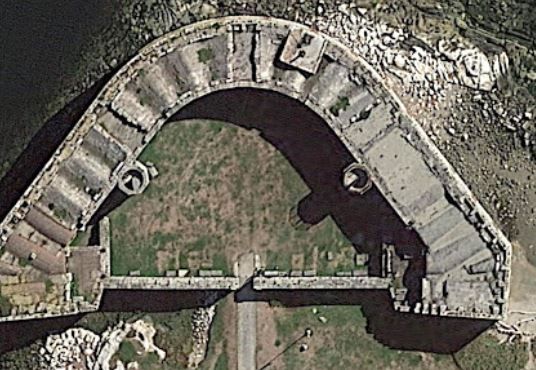Popham Colony

The Popham Colony—also known as the Sagadahoc Colony—was a short-lived English colonial settlement in North America. It was established in 1607 by the proprietary Plymouth Company and was located in the present-day town of Phippsburg, Maine, near the mouth of the Kennebec River. It was founded a few months after its more successful rival, the colony at Jamestown. That colony was established on May 4, 1607 (Old Style, May 14 N.S.) by the London Company in present-day James City County, Virginia.
The Popham Colony was the second colony in the region that would eventually become known as New England. The first colony was St. Croix Island, near what is now the town of Calais. (St. Croix Island was settled initially in June of 1604, then moved in 1605 by Samuel de Champlain to the Bay of Fundy).[1] Popham was abandoned after only 14 months, apparently more due to the death of patrons and the first colony president than lack of success in the New World. The loss of life of the colonists in 1607 and 1608 at Popham was far lower than that experienced at Jamestown.
